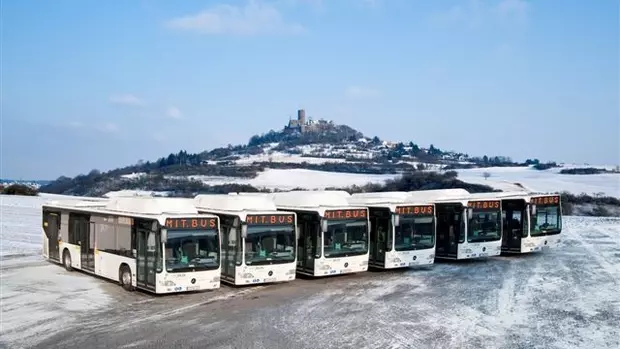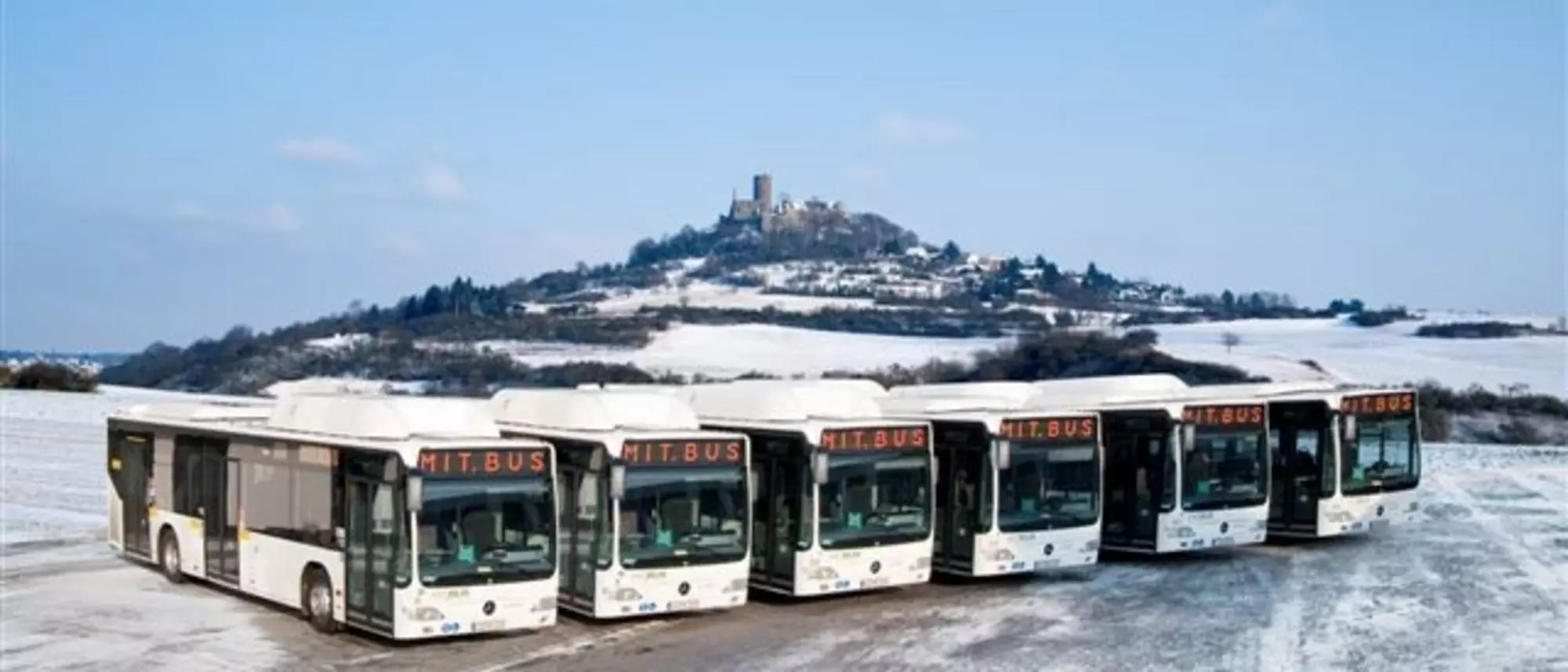
MIT.BUS GmbH, the local transport company of Stadtwerke Gießen AG, is expanding its fleet by six buses and is focussing on models with low-emission natural gas drives and more space for disabled passengers.
The city buses were presented by Mathias Carl, Managing Director of MIT.BUS GmbH. "We are sticking to our modernisation strategy and continue to rely on natural gas-powered city buses".
Thanks to modern low-floor technology, the buses allow easier access for older passengers. The vehicles exceed the current EURO 5 emissions standard and comply with the EEV (Enhanced Environmentally Friendly Vehicle) standard. They also fulfil the OBD2 (on-board diagnostics) control standard, which has been in force since 1 October 2009 and enables third parties to check the required exhaust gas quality via a defined interface. These high requirements for the vehicles are aimed at further reducing emissions of pollutants and particulate matter.
Three of the six new vehicles are articulated buses. With the aim of providing accessibility, more space has been created for people with wheelchairs and for a wheelchair-accessible gangway with suitable seating. In addition to the regular replacement of older vehicles, the background to the expansion of the fleet is the fact that Stadtwerke Gießen will take over responsibility for bus routes 800, 801 and 802 with the timetable change on 13 December. In future, the new vehicles will run to and from Wettenberg as well as in the city of Giessen.
MIT.BUS is investing a total of around 1.9 million euros in its vehicle fleet this time. With the new buses, 23 of the 54 MIT.BUS buses now run on natural gas. MIT.BUS has been gradually restructuring its local transport fleet since 2006. In addition to the cost advantage of natural gas as a favourable fuel, the significantly better pollutant balance of natural gas vehicles plays an important role. Due to its comparatively simple chemical structure, natural gas burns significantly "cleaner" than other fossil fuels such as petrol or diesel. Natural gas vehicles have better environmental characteristics, particularly with regard to particulate matter, nitrogen oxides and the greenhouse gasCO2.

